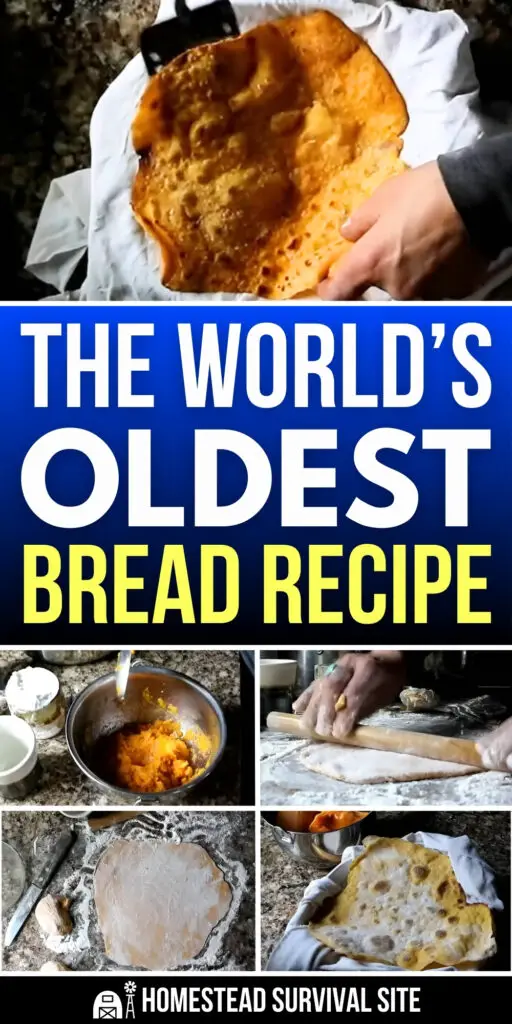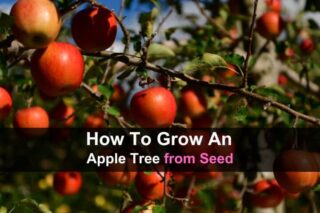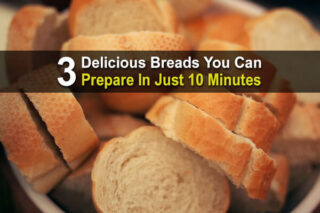Estimated reading time: 5 minutes
People have been making bread for thousands of years. In fact, there is evidence of bread-making dating back at least 30,000 years. Unfortunately, prehistoric humans didn’t jot down their recipes on cave walls or clay tablets. But through archaeological research, we have a pretty good idea of how they did it.
Early humans likely combined wild grains and starchy root vegetables like sweet potatoes or yams, then fried or baked the mixture into flatbreads using hot stones or fire pits. These rustic breads were simple, nourishing, and easy to cook without an oven. Perfect for early nomadic lifestyles but also practical for modern off-grid living.
This particular flatbread recipe comes from the YouTube channel, Off Grid with Doug & Stacy, where Stacy shares her take on one of the oldest bread styles in human history — using just sweet potatoes, flour, and salt. Check out the video and instructions below.
Want to save this post for later? Click Here to Pin It On Pinterest!
Ingredients:
- 1 cup mashed sweet potato (warm works best)
- 1 cup sprouted wheat flour (or any ancient grain or gluten-free flour)
- ½ teaspoon salt
- Coconut oil or avocado oil for frying
You can also use butternut squash, canned pumpkin, or other sweet root veggies in place of sweet potato.
Instructions:
1. Prepare the Sweet Potatoes
Boil or steam the sweet potatoes until they're soft.
Peel and mash them while they're still warm.
Measure out 1 cup of mashed sweet potato for the dough.
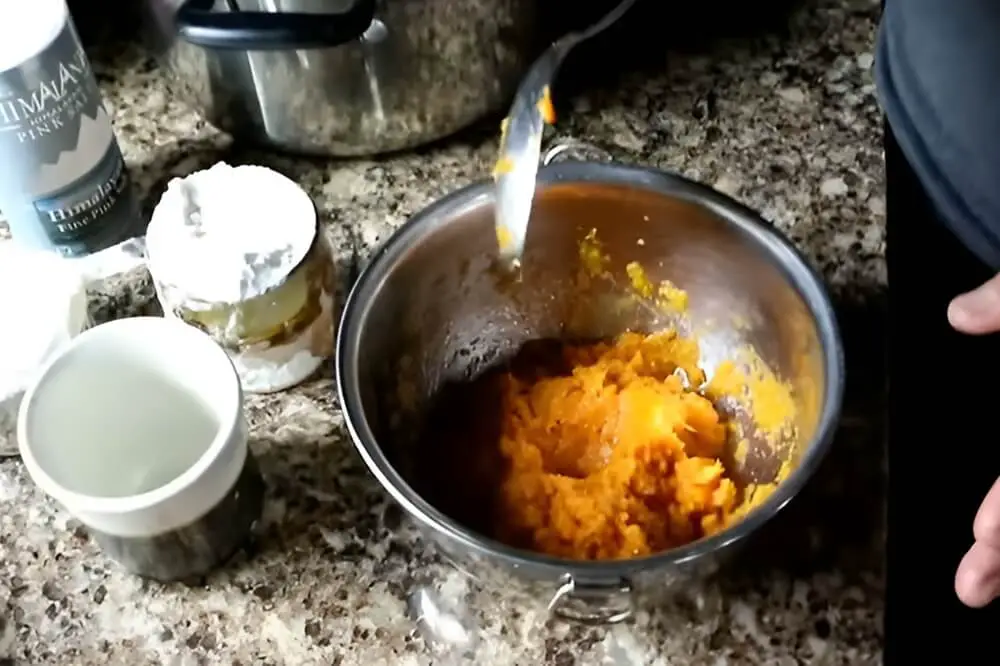
2. Mix the Dough
Combine 1 cup of mashed sweet potato, 1 cup of flour, and ½ tsp salt in a bowl.
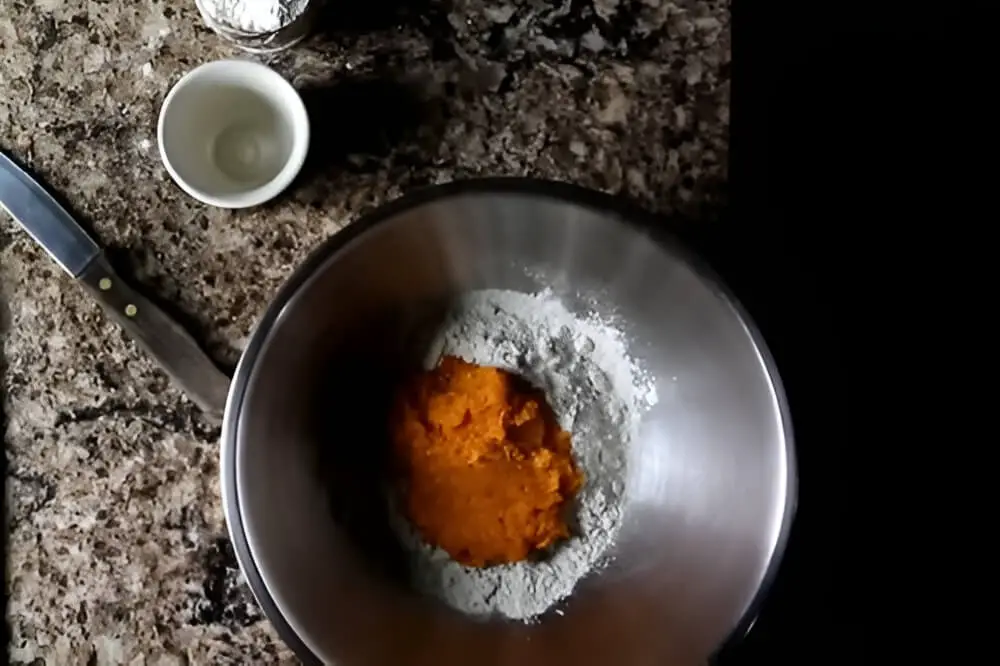
Mix with a spoon, then use your hands to knead it into a dough.
If it’s too sticky, add a little more flour until it’s soft and pliable.
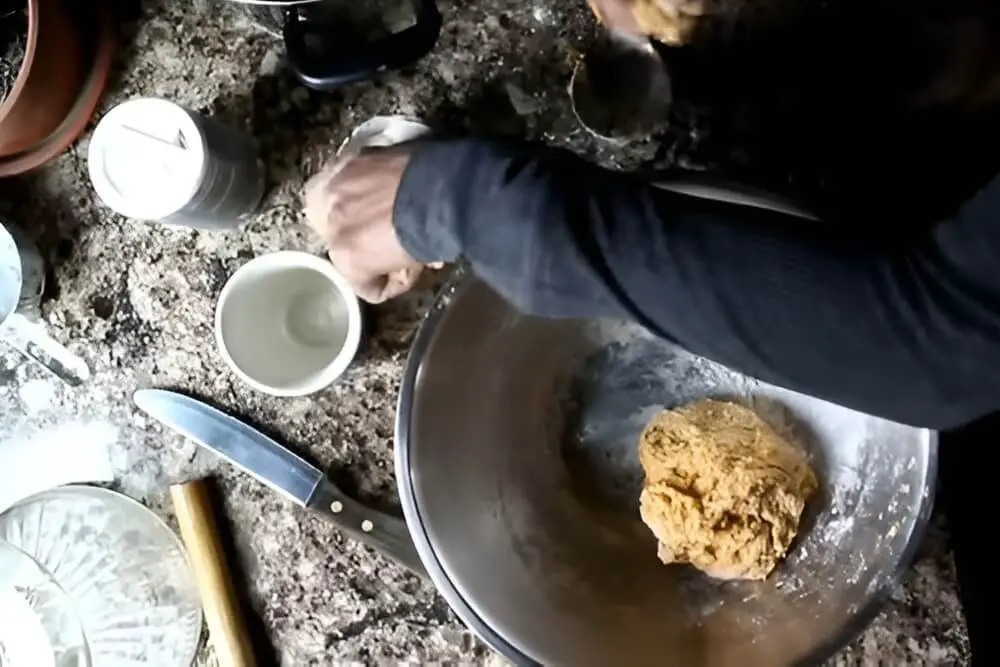
3. Shape the Dough
Lightly flour your work surface.
Roll the dough into a log and cut into 4–8 equal pieces (depending on the size of flatbreads you want).
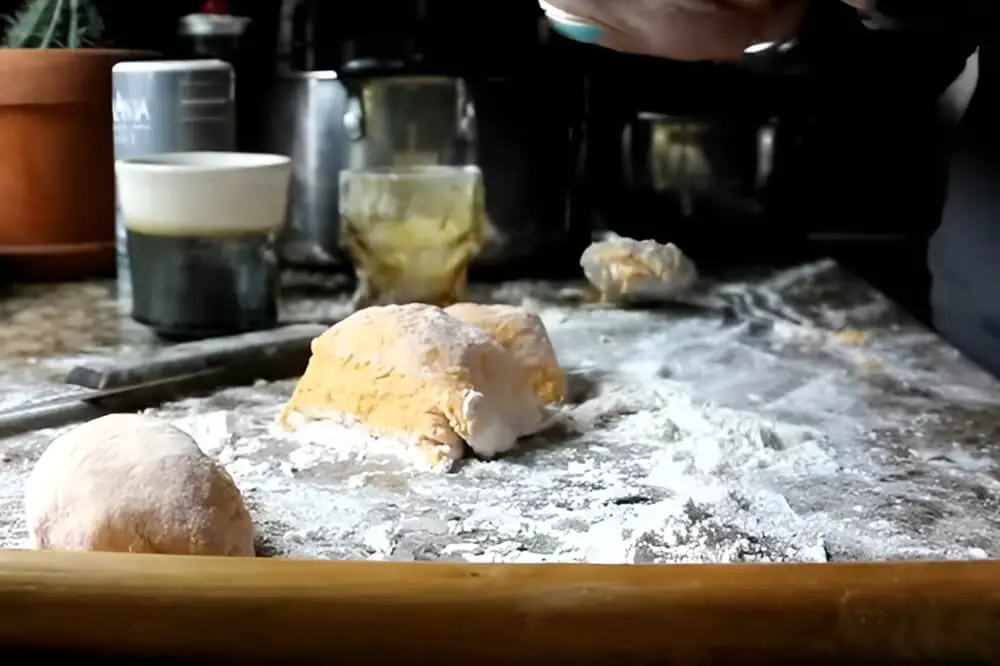
Roll each piece into a ball, then flatten with a rolling pin or dowel rod.
Stacy uses a cut broom handle as a rolling pin. It works great and costs nothing.
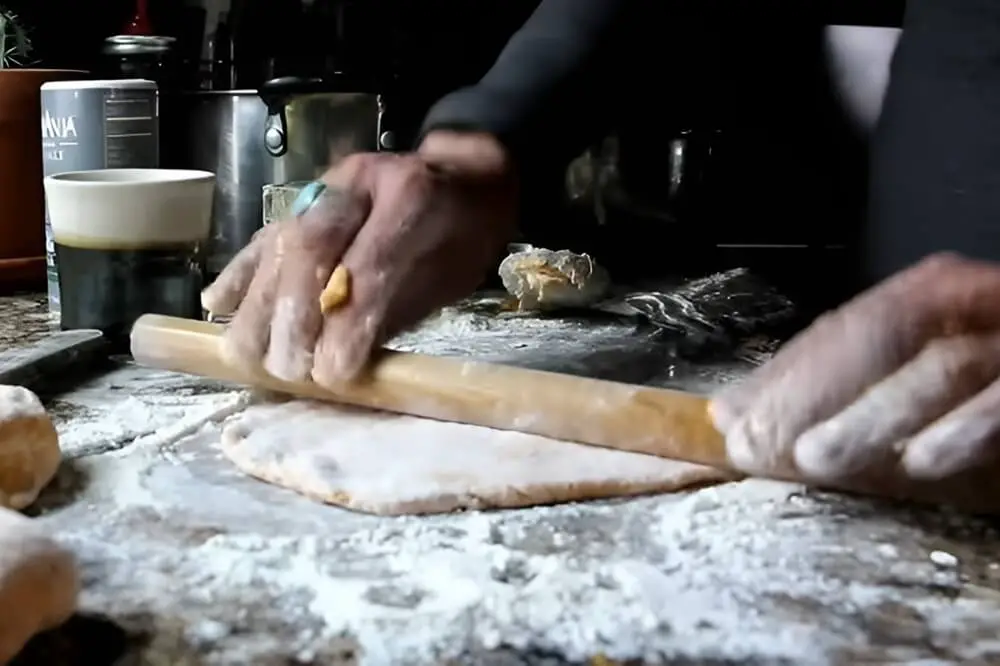
4. Cook the Flatbreads
Once your flatbread is ready to fry, it should look like this:
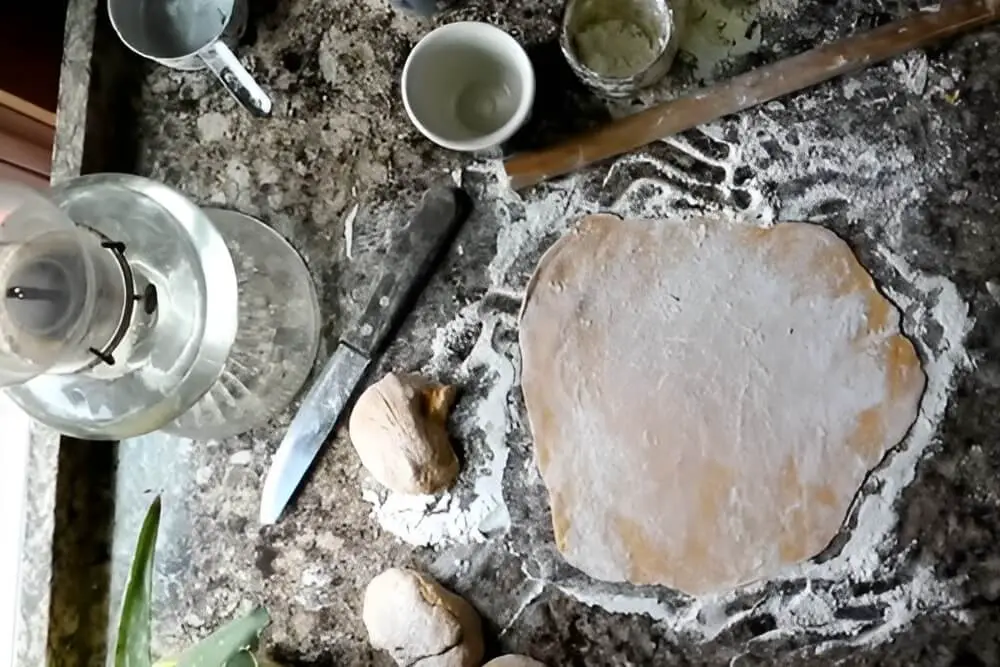
Heat a tablespoon or two of coconut or avocado oil in a skillet over medium heat.
Place one flatbread in the pan and cook for 2–3 minutes on the first side.
Flip and cook for another 2–3 minutes, until golden brown and slightly puffed.
Repeat for all pieces.
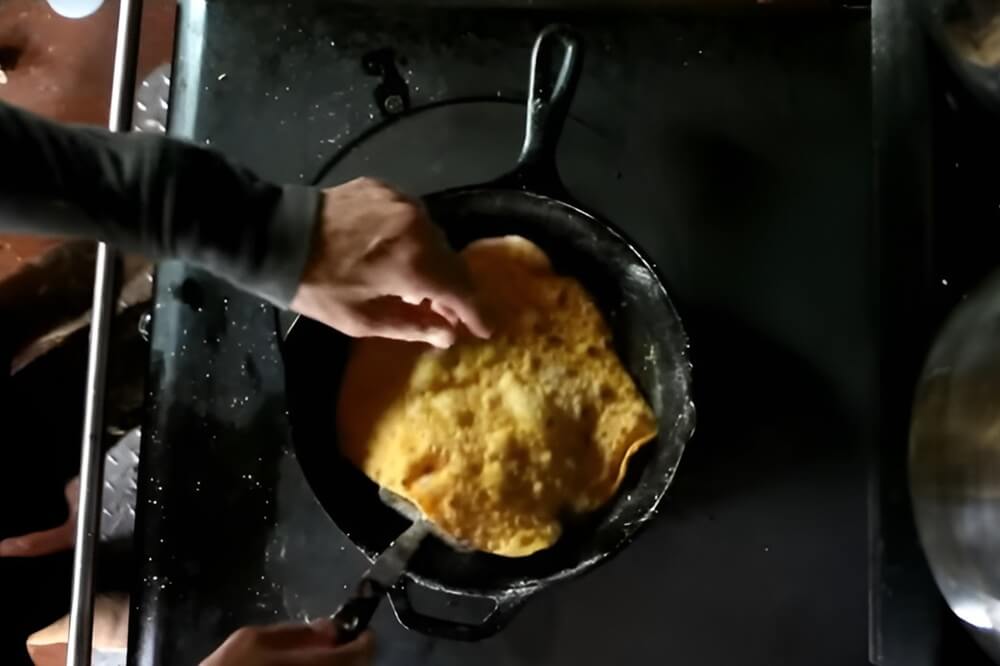
5. Store & Serve
Place cooked flatbreads in a clean cotton cloth or old t-shirt to keep them soft and moist.
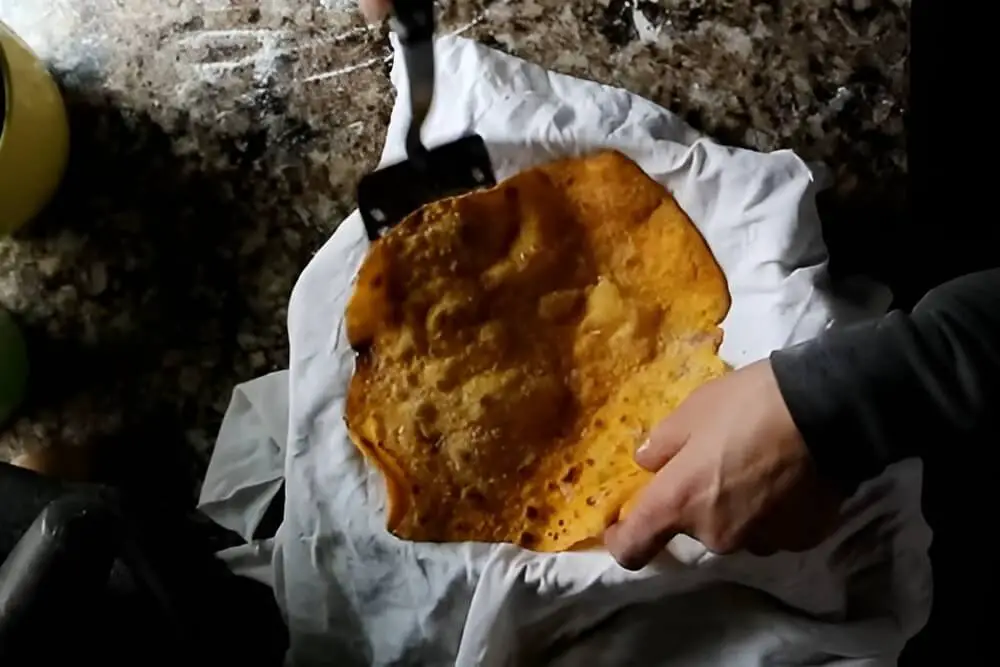
Stack and wrap them in the cloth, then place in a sealed container.
They’ll stay fresh for several days.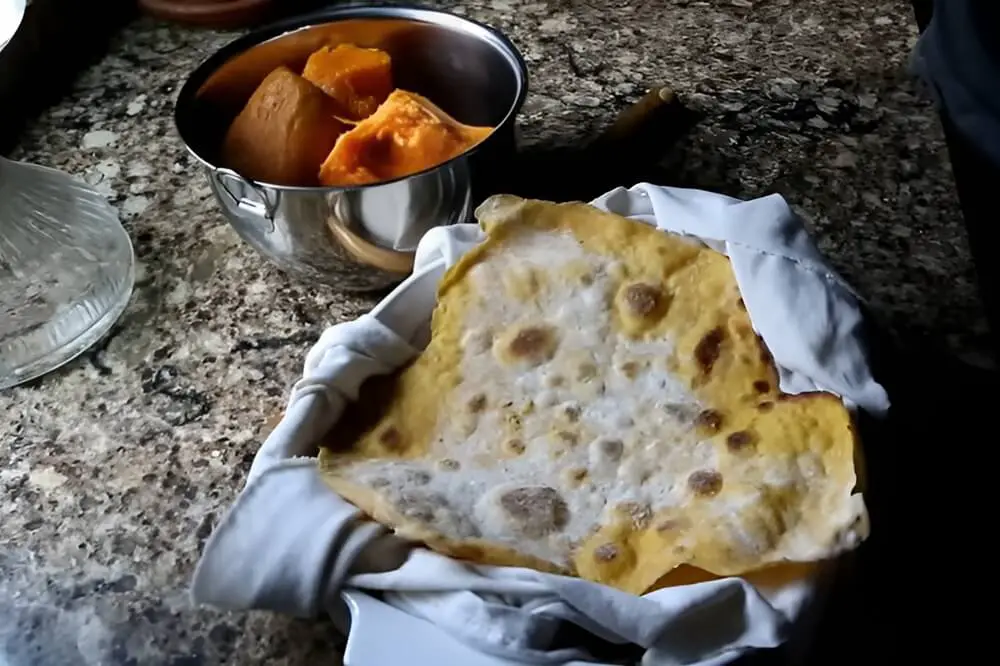
Like this post? Don't Forget to Pin It On Pinterest!
You May Also Like:



